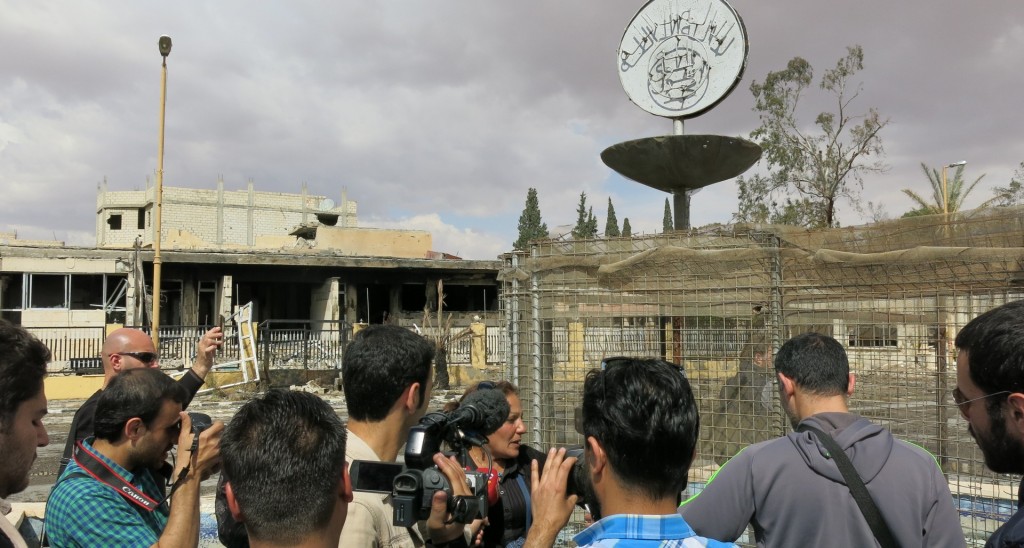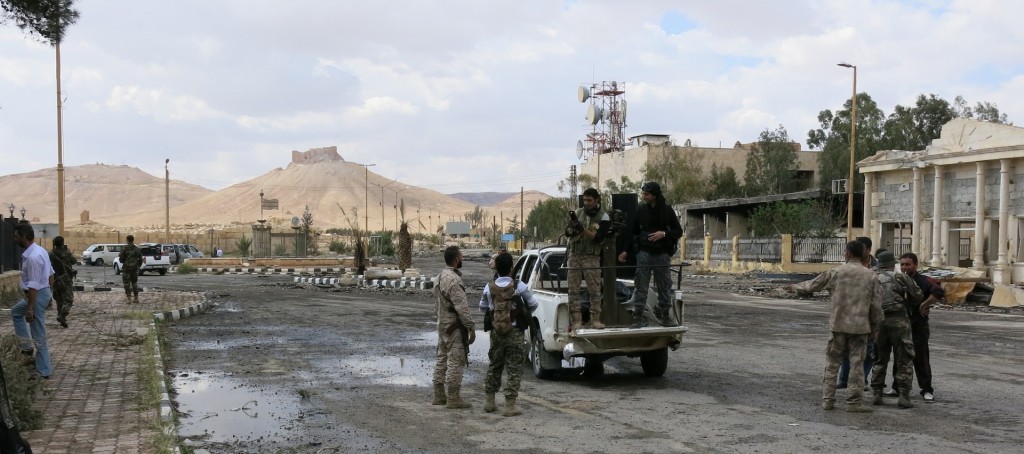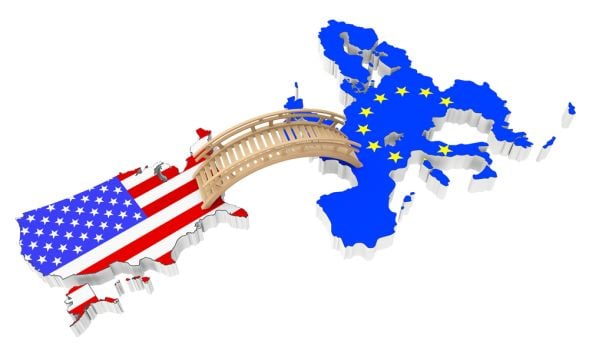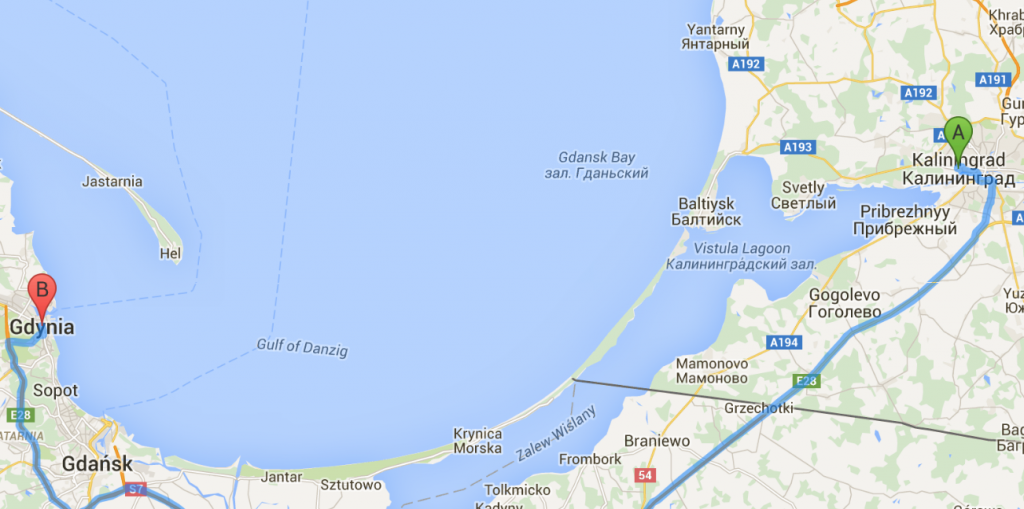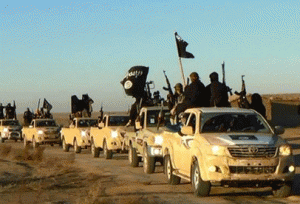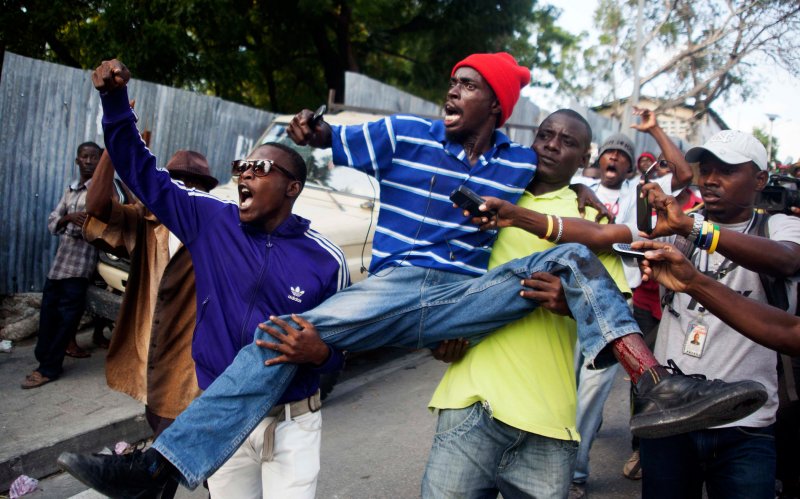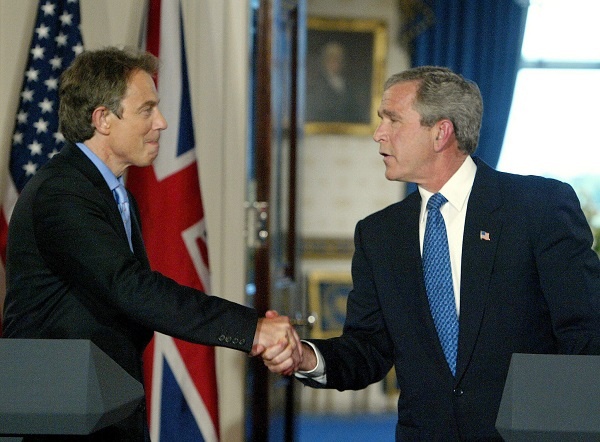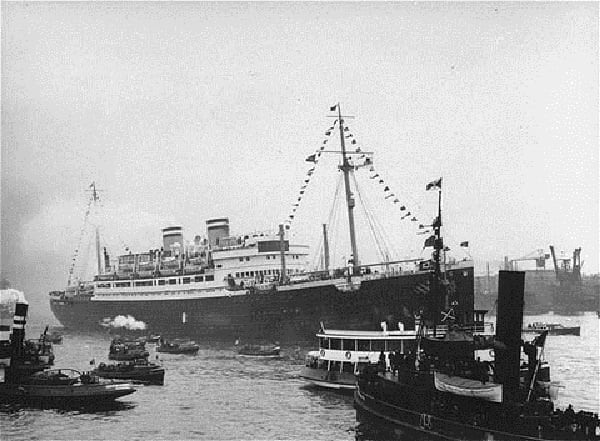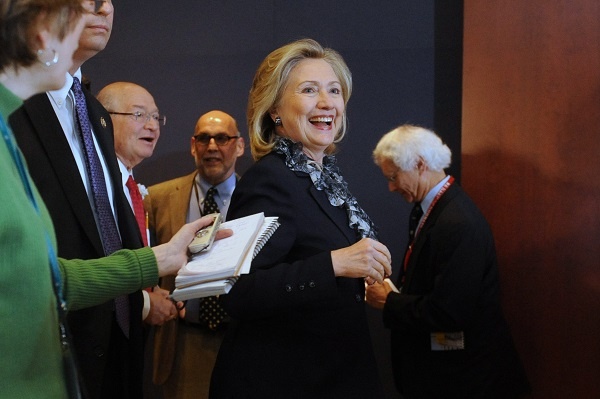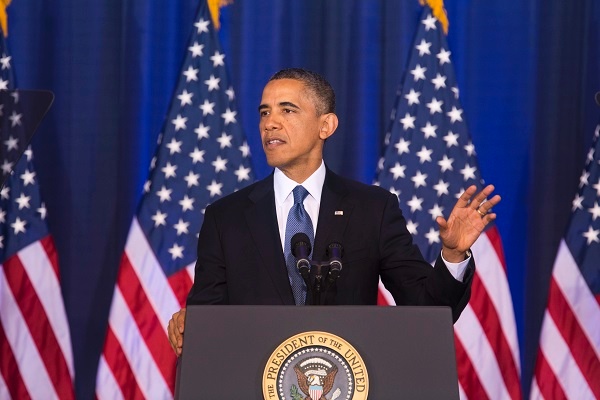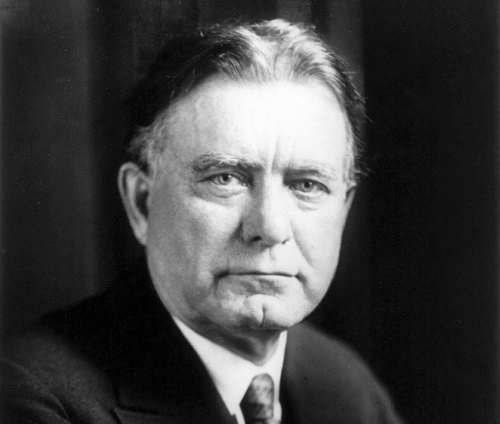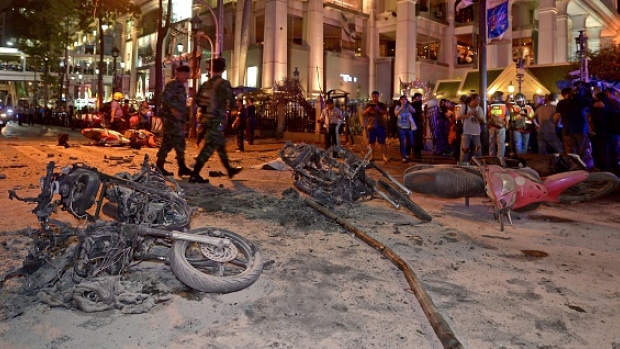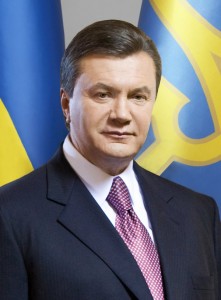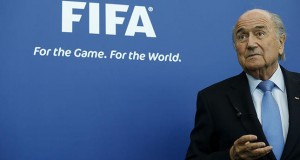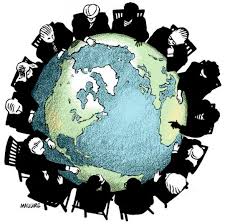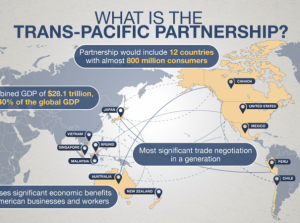Labor Rights: What Did Quebec Public-Sector Unions Achieve?
April 15th, 2016 by Ashley Smith
After a wave of protests and job actions that culminated in Quebec’s largest general strike in decades last December, public-sector unions have agreed to a series of contracts with disappointing concessions that raise questions about where the struggle in Quebec will go next. [Ed.: see “Quebec Unions Debate a Settlement.”]
On December 9, more than 400,000 workers shut down government services to defend their wages, benefits and working conditions. Liberal Party Premier Philippe Couillard provoked the strike by demanding massive concessions. Unions formed a bargaining alliance, the Common Front, to negotiate with the government. The nurses in the Fédération interprofessionnelle de la santé du Québec (FIQ) and teachers in the Fédération autonome de l’enseignement (FAE) held separate talks.
In the wake of the general strike, the Common Front reached a tentative agreement on December 17. The FIQ settled a similar deal. The union officials claimed it was a triumph for the workers, but Robert Green, a teacher in Montreal, argues that, at best, it maintained the status quo and therefore deemed it “a hollow victory,” in an article for the Ricochet website.
One of the largest unions in the Common Front, the Fédération de la santé et des services sociaux (FSSS), which represents healthcare workers, rejected the agreement. So did the FAE. They hoped to continue negotiations for a better settlement, but in the end agreed to a deal that was little better than that reached by the Common Front.

Benoit Renaud, a teacher and activist in the left-wing party Québec Solidaire, observed:
“If you view the strike as a boxing match between the government and the unions, you could say that it was a split decision, with two judges declaring the government the winner and one the workers the winner. The government was going for a knockout, and it certainly didn’t get one. The unions made it a fight, blocked the government’s worst shots and managed to land some of their own. But in the end, they didn’t win the fight.”
Now that union members have ratified all of these agreements, this phase of class struggle against neoliberal austerity in Quebec has come to a close, and activists are drawing lessons for the next one.
Setting the Stage: From 2008 to the Present
The struggle was set in motion by the 2008 economic crisis. Just like other provinces in Canada, Quebec’s government led by Liberal Party Premier Jean Charest bailed out capital, driving up the deficit and debt, but mainly for the benefit of big business. The Liberals then launched a campaign of austerity to balance the budget on the backs of the working class. They planned to raise tuition in higher education, slash welfare programs and impose wage freezes, pension cuts and productivity increases on public-sector workers.
Quebec’s working class refused to take these attacks sitting down. Radicals helped pull together an alliance – the Red Hand Coalition – that united student unions, community organizations and unions to combat the Charest program of austerity. Quebec’s left-wing party, Quebec Solidaire (QS), used its members of the national assembly to voice solidarity with the emerging resistance.
Students led the charge against the government. Their radical union, the Association pour une solidarité syndicale étudiante (ASSÉ), organized the biggest student strike in the province’s history to stop tuition hikes and fight for free higher education. Braving repressive legislation banning unpermitted pickets and marches, hundreds of thousands of students shut down the education system for months in 2012. Their protest – famously dubbed the Printemps érable (Maple Spring) – forced Charest to call an election, which the Liberals lost in one of their worst defeats in decades. The student strike had toppled the government.
The nationalist party, the Parti Québécois (PQ), won the election in 2012 and formed a minority government. While it did roll back the Liberals’ tuition hike and repealed the repressive legislation, the PQ soon abandoned its left-wing posturing and implemented austerity policies of its own. The party tried to stave off waning popularity by various means, including an Islamophobic “Charter of Values” that tried to ban Muslims from wearing the hijab in public-sector jobs. This bigoted campaign backfired. With its voting base alienated, the PQ lost power in the 2014 election to the Liberals, who opposed the Charter on a platform of individual liberty. With a solid majority under new premier, Philippe Couillard, the Liberals quickly declared all-out war on the welfare state, announcing $3.7-billion in proposed cuts.
All-Out Austerity
Premier Couillard singled out public-sector unions whose contracts expired last April. He wanted to impose wage freezes on all these unions for the first two years of a five-year contract, followed by a meager increase of 1 per cent for the final three years of the contract.
In education, Couillard wanted to increase class sizes; count children with special needs as one child, instead of three, as has been the norm; and increase the work week from 32 to 40 hours. In healthcare, the government aimed to raise the number of patients for each nurse, increase forced overtime and deny any increase in bonuses for working night shifts.
The unions’ proposals in negotiations were the polar opposite of Couillard’s. They wanted raises of 13.5 per cent over the life of a three-year contract, increased investment in public services, and improvements of their working conditions.
After some preparatory battles in the spring and summer, the conflict erupted into an all-out confrontation in the fall of last year.
The Red Hand Coalition helped community organizations stage several strikes, most of them for the first time ever. ASSÉ prepared a series of one-day strikes and rallies. And the Common Front unions as well as the FAE organized a sequence of rotating regional strikes.
Parents of children in public education got involved as well. On the first weekday of every month, thousands of parents, organized in the group Protect Our Public Schools, set up human chains in front of their kid’s schools to protest cuts in the education budget.
This broad anti-austerity struggle won majority support from Quebec’s people, especially in the working class. One poll found that 51 per cent backed the unions while only 28 per cent supported Couillard in the contract battle.
Militancy on the Rise
All the stars were seemingly aligned for workers, students and community organizations to unite in three-day general strike planned for early December. But union militants recognized that the officials would pursue a conservative strategy.
As Philippe de Grosbois, a teacher and member of his local union executive, stated:
“Our leadership has spent decades waging defensive fights, trying to maintain what we have, and now that our social model is being brutally attacked, workers are ready to be more offensive, but the officials are reluctant to embrace this new militancy.”
Union radicals therefore formed a new rank-and-file formation, Lutte Commune, to press for democratic organizing of the struggle and the militant strategies and tactics needed to win against the government. They organized forums that cut across the sectoral divisions between the unions. And they reached out to build solidarity with the other forces in the anti-austerity movement.
But the network wasn’t influential enough to shift the approach of the union officialdom. Labour leaders tightly controlled the planning for any action, and while they adopted the anti-austerity discourse of the broader movement, they led their contract campaign with little coordination with other forces in the battle against the government.
Thus, despite widespread preparation for the general strike by students, community groups and public-sector workers, the union officials called it off. They vainly hoped that a show of good faith in bargaining would convince Couillard to reach a settlement. This profoundly disunited and disoriented the anti-austerity movement.
Of course, the government refused to budge from its hard-line stance. And under pressure from union activists agitating for action, the Common Front finally called a one-day general strike on December 9. While over 400,000 workers shut the province down, the union officials had no plan to up the ante after the strike with further, longer job actions – and the emergent rank-and-file organizations were not yet strong enough to push them into more struggle.
Reaching a Settlement
In the aftermath of the strike, the union leadership rushed to cut a deal. The FIQ settled first, winning some demands for nurses on workplace conditions. But the Common Front’s negotiations set the pattern for wages and benefits. At best, its deal maintains the status quo. Claims of a decisive victory are misleading.
The agreement does fend off the worst attacks from the government on working conditions, but the Common Front compromised on retirement age, agreeing to let it rise to 61 in 2019. And the claim of a wage increase of 10.25 per cent over the life of the five-year deal is deceptive. As Robert Green shows, public-sector workers in fact “will have suffered a 2.35 per cent reduction to their purchasing power by the end of the contract.”
The wage agreement was so disappointing that the FSSS, which represents 100,000 workers, many of them in poorly paid sectors of healthcare, rejected the Common Front’s settlement. The union’s President Jeff Begley stated,
“For most workers in the FSSS, this agreement does not increase wages enough to cover losses over the previous years and certainly doesn’t bring up to the levels of workers in the rest of the public sector.”
The FAE, which represents some 34,000 teachers, rejected a similar offer in separate negotiations. The FSSS and FAE hoped that union locals in the Common Front would vote down the settlement and join them in further struggle. Lutte Commune, as well as a new caucus of rank-and-file union members in QS, Comité Intersyndical de Quebec Solidaire, agitated for their fellow members to reject the contract in local meetings. The militants argued that the unions were in a position to win a better deal with more strikes and protests. They convinced a significant minority to vote against the agreement in many locals, and won a majority in some locals. But the union officials managed to get the vast majority of locals to ratify the agreement.
Isolated and without much solidarity from the other unions, the FAE and FSSS were not able to win a better settlement. The government refused to budge from the terms it had struck with the Common Front. And the FSSS and FAE did not risk further strike actions on their own out of fear that the government would force them back to work and impose a contract.
FSSS and FAE won some improvements in working conditions for their members, but agreed to the same terms on wages and benefits as the Common Front. But unlike the leadership of the Common Front, the union officials of FSSS and FAE did not dress up the contract as a victory. A majority of members ratified the contracts, but large minorities did vote against it, and in FAE, three locals voted it down.
Taking Stock
After the last contract was ratified by the FAE membership at the end of March, union militants have begun drawing lessons for future struggles.
Many view this last fight as a transitional one. The union officials remain trapped in conservative and defensive strategies, while the rank and file is ready for more militancy, but not yet independently organized to push for it. As a result, the union movement managed to stop the worst attacks, but still conceded ground to the government’s austerity agenda.
The unions made it enough of a fight that Couillard realized that he had to temporarily back off his most severe attacks. He has since tried to give his government a facelift to revive its popularity. He reassigned his hit man in the contract negotiations, Martin Coiteux, from president of the Treasury Board to minister of Public Safety and Municipalities. But it would be wrong to think the government has abandoned austerity.
The PQ, which has a powerful majority in government, is in turmoil under the leadership of billionaire Pierre Péladeau, and the QS is not yet in a position to challenge the Liberals, with only three members of the National Assembly. Moreover, with the likelihood of another recession in the coming years, the Quebec state will continue attacks on the welfare state, public-sector workers and the working class in general.
Even union officials recognize this. Thus, Louise Chabot, president of the labour federation Centrale des syndicats du Québec (CSQ), told the press after Common Front’s settlement, “We know that the government continues to want to cut back significantly in childcare, health and education.” She promised that the unions would fight to stop these in the next budget fight, declaring, “If we do not stop it, it will cause considerable damage to our society.” But, as their conservative strategy in the contract fight proves, the union officials are unlikely to mobilize their forces in a broader struggle let alone a social strike against austerity.
Therefore, the new radical formations that led the wave of struggle since Great Recession will be vital to building a new round of struggle. The Red Hand Coalition will have to deepen the newfound militancy among community organizations. ASSÉ must find a way to overcome the divisions left over from last year. Perhaps most importantly, rank-and-file formations like Lutte Commune will need to consolidate themselves, deepen and broaden their networks, and prepare to push the leaderships for more militant action.
Quebec’s organized working class, especially in the large public sector, has the power to reverse the attacks if prepared to deploy that power with more militant strategies and tactics than the labour officials are predisposed to use. That fight will also take on a political character with the approach of a new election in 2018. The movement against austerity has learned bitter lessons from the PQ’s betrayal of its left electioneering rhetoric. It has proved it is no alternative to the Liberals.
The question will be whether QS is able to overcome the pull of ‘lesser evilism’ – which leads workers to vote for the PQ to get the Liberals out – and galvanize workers behind a principled program for reversing neoliberal austerity. While QS has three members [Françoise David,Amir Khadir, Manon Massé] of the National Assembly and its vote total has doubled since 2007 to 7.63 per cent in 2014, the left-wing party has a long way to go to contend with, let alone defeat, the Liberals and the PQ.
One important element in the next round of struggle will be the revolutionary left. Amid the working class ferment, new socialist organizations have emerged, like the Front d’Action Socialiste and Réseau Écosocialiste inside QS. These will be important for providing a theoretical, strategic and tactical leadership inside the broader formations leading working class struggle.
All these discussions and debate will hopefully be on full display at the World Social Forum, which is scheduled from August 9-14 in Montreal. Activists from all over the world, and especially from North America outside Quebec, will be able to learn from the province’s explosive struggles over the last few years. And in turn, veterans of struggles throughout the world will also share lessons to aid the next phase of class struggle in order to win a more just and equitable social order in Quebec. •
Ashley Smith writes for the Socialist Worker where this article first appeared.


